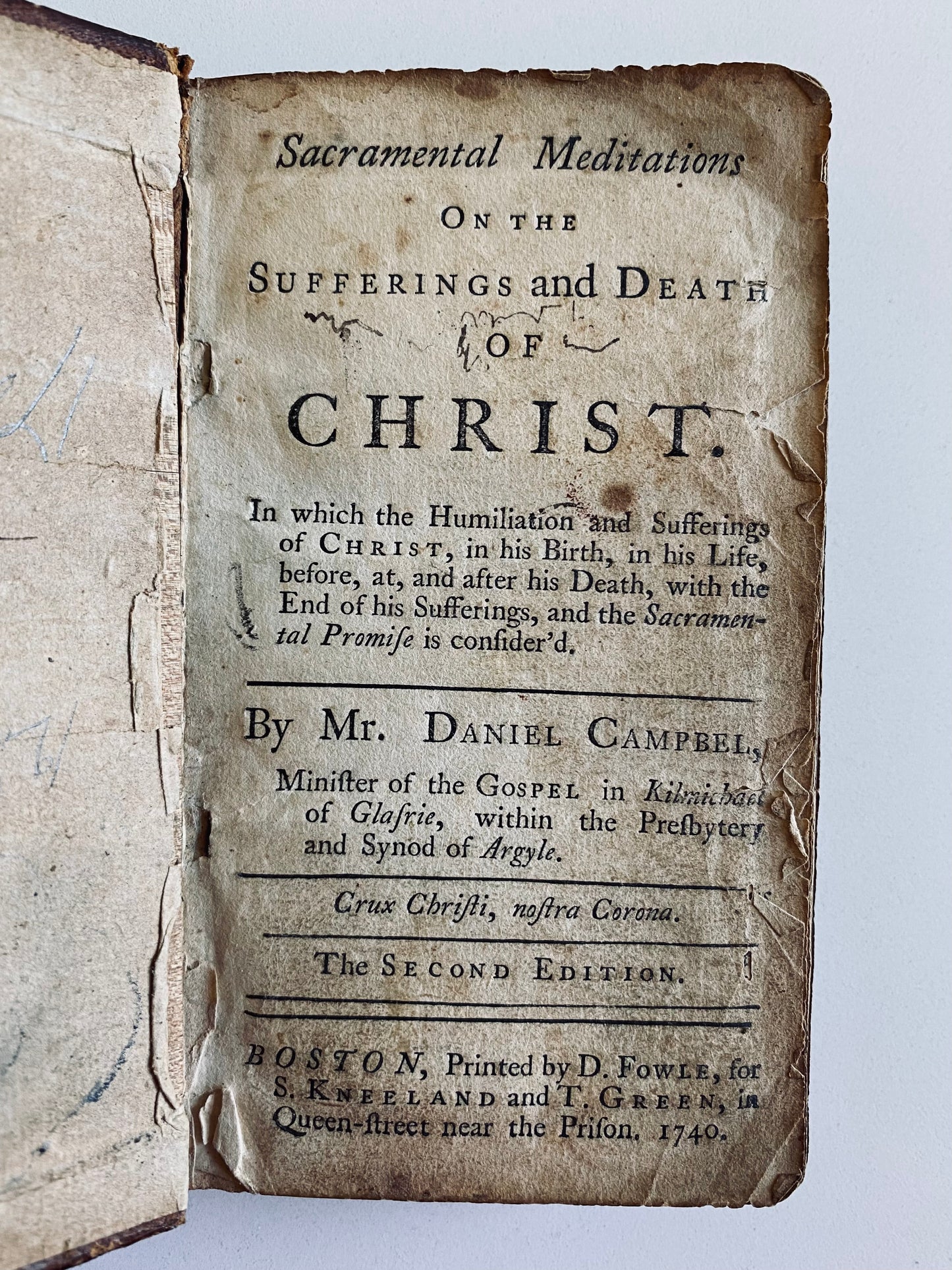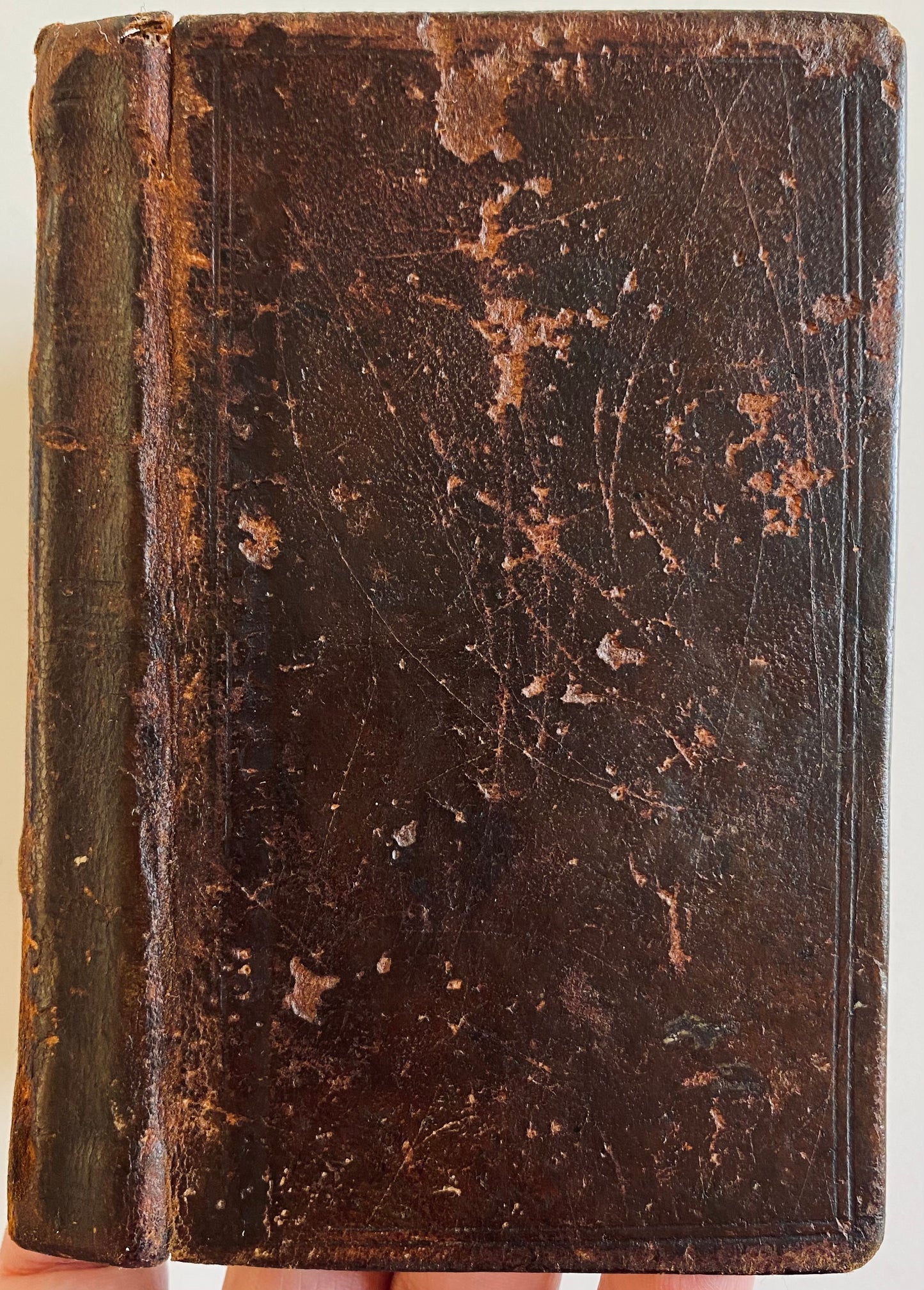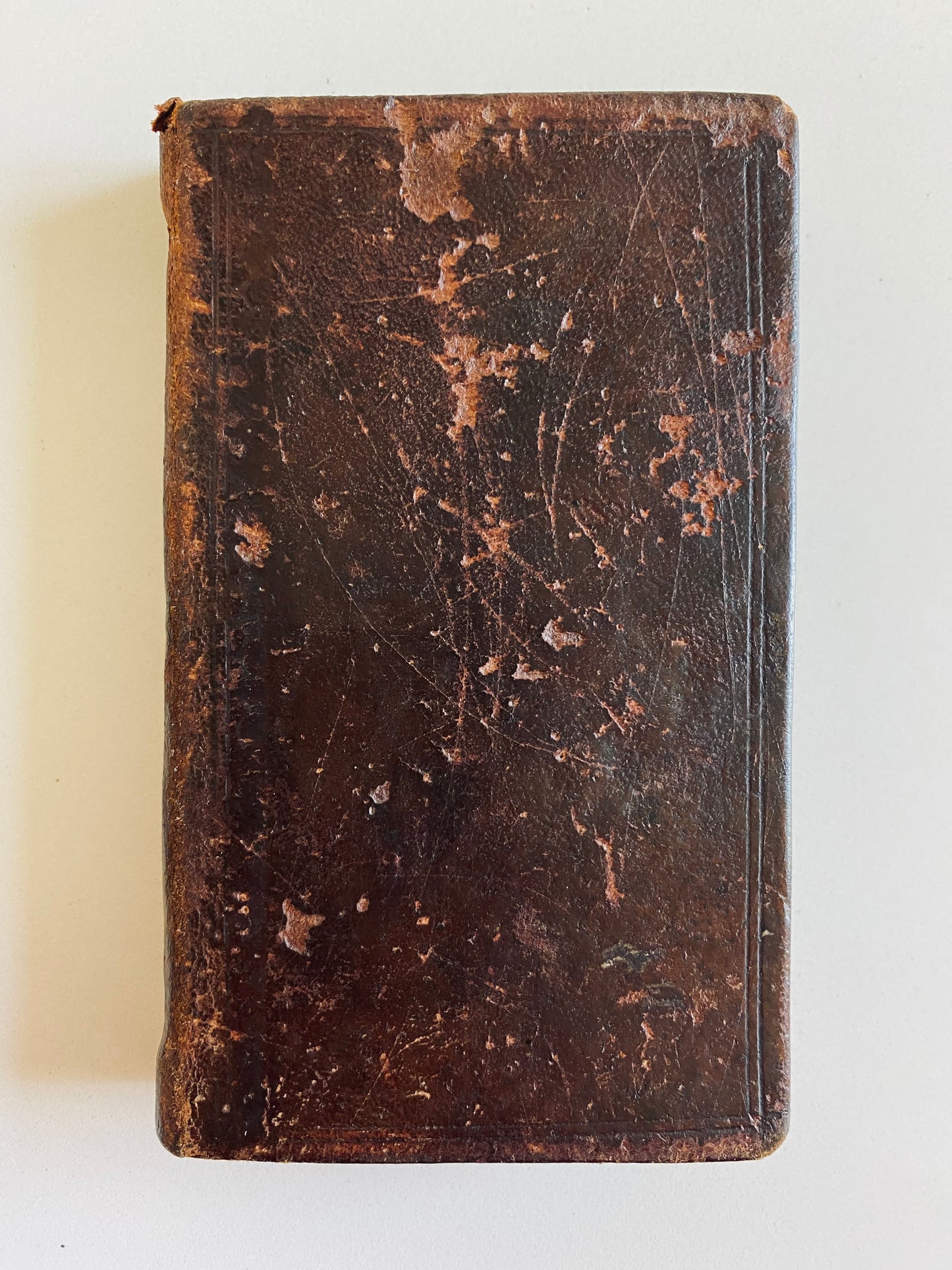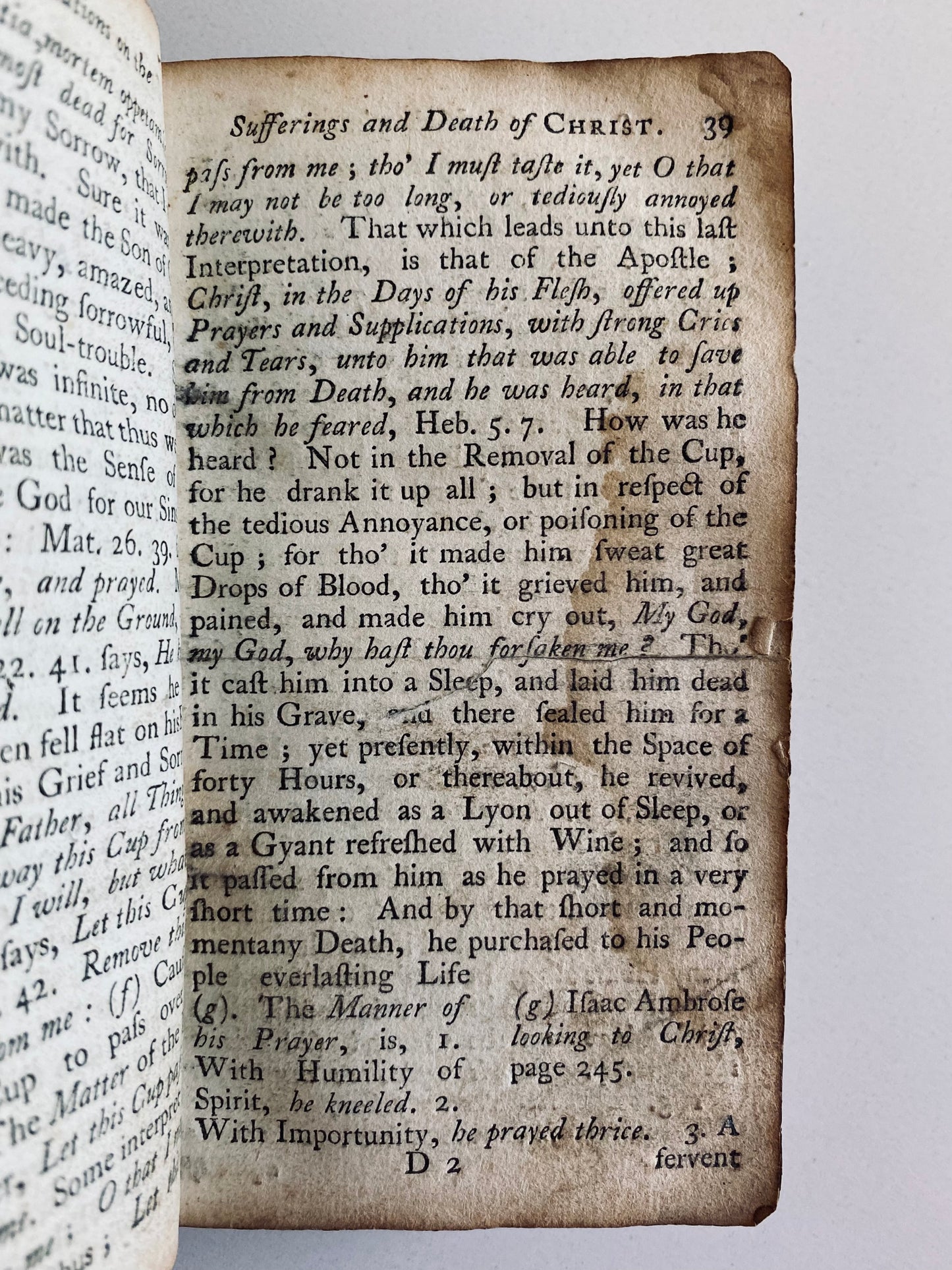Specs Fine Books
1740 DANIEL CAMPBELL. Important Great Awakening Imprint of Sacramental Meditations. Jonathan Edwards Interest.
1740 DANIEL CAMPBELL. Important Great Awakening Imprint of Sacramental Meditations. Jonathan Edwards Interest.
Couldn't load pickup availability
Very scarce Great Awakening / Jonathan Edwards related imprint of a superb work by Daniel Campbell [1665-1722]. He was ordained to the ministry at Glassary in Argyllshire in 1691. He was the author of many works of devotion, but none was more popular than his 1698 Sacramental Meditations, originally preached in Irish [which was spoken in Argyllshire, Scotland in the 17th century]. It was a work perfectly suited to The Great Awakening and underwent imprints in Scotland to accompany the Cambuslang and Kilsyth revivals under George Whitefield, with their accompanying large outdoor celebrations of the Lord’s Supper. It then followed Whitefield to America, along with the accompanying hymns by Watts, and was printed, according to Jonathan Edwards scholar, Jonathan Yeager, as Samuel Kneeland believed. . .
“. . . [it] could be used by revivalists to help foster authentic piety at that time.”
Campbell, Daniel. Sacramental Meditations on the Sufferings and Death of Christ. In which the Humiliation and Sufferings of Christ, in his Birth, in his Life, before, at, and after his Death, with the End of his Sufferings, and the Sacramental Promise is consider’d. By Mr. Daniel Campbel, Minister of the Gospel in Kilmichael of Glassrie, within the Presbytery and Synod of Argyle. The Second Edition. Boston, Printed by D. Fowle, for S. Kneeland and T. Green, in Queen-street near the Prison. 1740. 187 + 5pp.
Samuel Kneeland was Jonathan Edwards’ publisher and Edwards himself exerted a significant influence on what Kneeland and Fowle published during the 1740’s. And it was during these years that Kneeland, Fowle, and Green were publishing endless sermons from Jonathan Edwards and George Whitefield, plus works by Thomas Foxcroft, Thomas Prince, Jonathan Dickinson, etc.,
It should be noted that the present work was one of very few publications of over 100 pages produced by Kneeland. The exceptions were the above-mentioned major works. Even Whitefield was issued a sermon at a time. This certainly says something about the importance which Kneeland placed on it . . . and it leaves us unsurprised that he could not bear to have the last few leaves unoccupied.
Those last few leaves, which would have been blank just based on the mathematics of the signature count, as we mentioned, did not go wasted. They are separately paginated and not called for on the title, but original to the publication; five pages, with four complete hymns, headed with what must be one of the most honest publishing advertisements in all of history, “The Following Hymns from the Reverend Dr. Watts are here inserted to fill up divers vacant pages.”
They include Godly Sorrow Arising from the Sufferings of Christ [Alas! And did my Saviour bleed!]; Our Sin the Cause of Christ’s Death [And now the scales have left mine Eyes,]; Look On Him whom they Pierced, and Mourn [Infinite Grief! Amazing Woe!]; and The Agonies of Christ [Now let our Pains be all forgot,].
Watts was officially introduced in America in 1729, with Benjamin Franklin's reprinting of Psalms of David originally having been printed in England some two decades previous. For the most part Watts' work was not accepted in American churches until the 1740s with the Great Awakening. By the late 1730’s. Franklin said he still had piles of Watts’ on the Psalms on his storage shelves.
Then, the Great Awakening! George Whitefield's lively preaching style called for something more than metric Psalms. Watts, along with a few other English hymnists, proved to be the perfect accompaniment. Whitefield played a great role in introducing hymn-singing to New England, and consequently "quickened an interest in hymn-singing, and increased the popularity of Watts' work."
Jonathan Edwards also played a pivotal role, commenting in 1742 that his Northampton congregation sang Watts' hymns, almost to the exclusion of Psalms. Watts and Edwards had a mutual respect and each promoted the other's work through printing, and through allowing the other's work in their pulpit. For Watts, this meant reading Edwards' A Faithful Narrative of the Surprising Work of God to his congregation and overseeing its printing; for Edwards this meant introducing Watts' hymnody into regular worship services.
For more on the introduction of Watts during the Great Awakening, see: https://christianhistoryinstitute.org/magazine/article/americas-hesitation-over-hymns
Original American plain calf binding measuring 3 x 5.5 inches, some rubbing as shown, small losses in the center of the board on rear, but attractive and sound, blank ffep and rfep lacking and the rear deteriorated. Some pencil scribbles on front pastedown. Text generally complete and sound with various leaves having light chipping, closed tears, etc., though not obscuring text. The last five leaves containing Watts having taken the worst of it.
Very scarce.
Share














